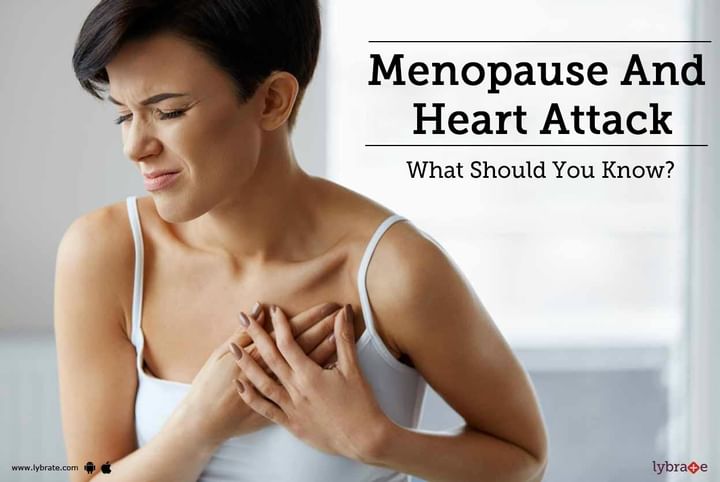Menopause And Heart Attack - Is There A Connection?
Menopause is an inevitable biological occurrence in every woman's life. It is a period when the menstrual cycle ceases permanently. Menopause brings about a sea of changes. From hormonal imbalance to insomnia to emotional breakdown and depression, the complications are many. Menopause is also found to increase the risk of certain health conditions, one of which includes heart problems and a heart attack. In this article, we will discuss the link between menopause and heart problems (including a heart attack) and the possible preventive measures.
The connection between menopause and a heart attack
As opposed to many beliefs, menopause, by no means is a diseased condition. It is a natural phenomenon that strikes every woman, usually after the age of 50. With menopause, there is also a dip in the level of estrogen hormone. Estrogen is an important female hormone that goes a long way in protecting women from various cardiovascular disorders.
It plays a pivotal role in the proper relaxation and dilation of the blood vessels to ensure the flow of blood to the heart remains unaltered.
Estrogen acts a catalyst, resulting in a significant increase in the level of the "Good Cholesterol" or HDL (High-Density Lipoprotein) and a dip in the level of the "Bad Cholesterol or LDL (Low-Density Lipoprotein).
- With a fall in the estrogen level, the concentration of LDL rises with a considerable dip in the HDL level.
- The higher the level of LDL, the more the chances of a heart problem, especially a heart attack.
- The LDL present in excess can adhere to the walls of the blood vessels and cause its blockage.
- The condition can also result in arterial blockage.
- Further, in the absence (or lesser concentration) of estrogen, the walls of the heart tends to lose its flexibility and elasticity to a great extent.
All these conditions can spell doom for the heart triggering a heart attack or other cardiovascular disorders.
Preventive Measures
- After the age of 50, it is essential to go for regular health check-ups.
- Avoid a sedentary lifestyle as much as you can. Exercise and physical activities, even for 30 minutes daily can make a difference. Obesity can play a significant role in triggering heart problems. Thus, it is essential to keep the body weight within control.
- Your diet can also influence overall health. Try and avoid foods that are rich in trans and saturated fats (doughnuts, cakes, pastries, cookies, margarine, frozen and creamy drinks, animal fats, to name a few). Go for a diet rich in folic acid (Avocados, dark green vegetables, citrus fruits, lentils, nuts, peas), whole grains, fish, fibers.
- The link between smoking and heart diseases need no special mention. Quit smoking if you want to keep the heart healthy and disease-free.
- Problems will always be there. Don't overstress yourself with the same. Spend quality time with family and loved one (day outs, short trips, and vacations).
- Never skip the prescribed medicines, unless advised by the attending physician.



+1.svg)
